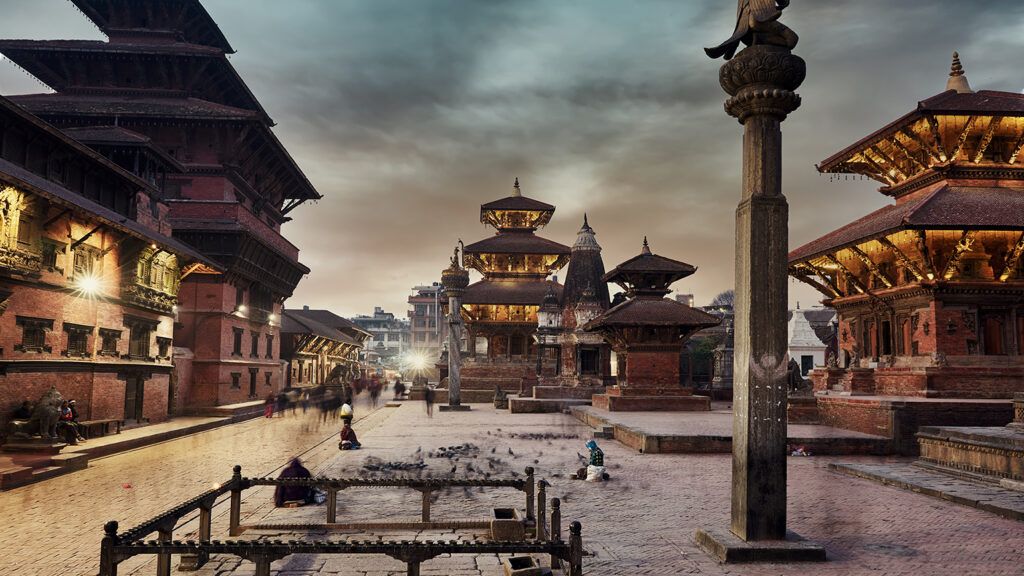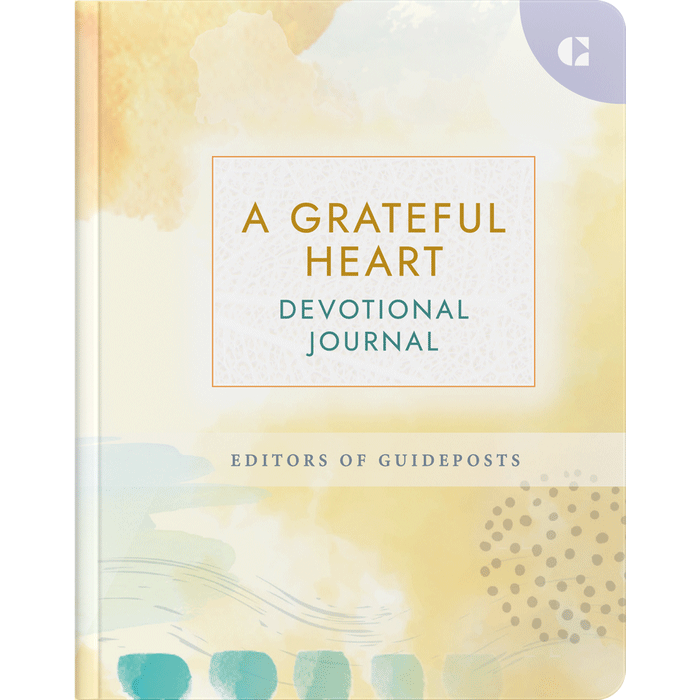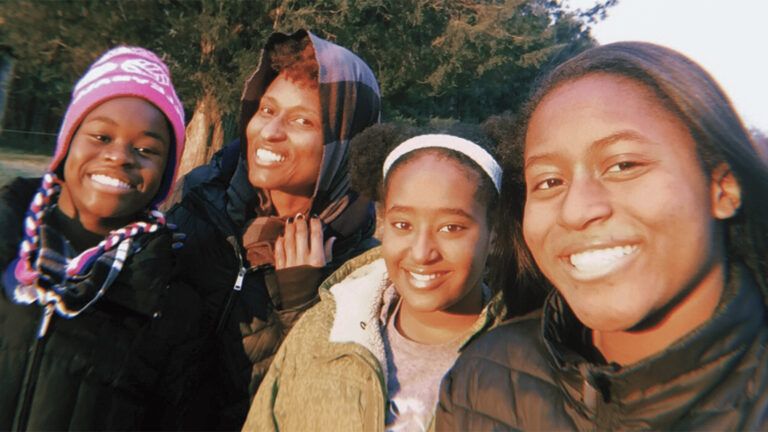That morning last December I stopped by a cafe here in Kathmandu, Nepal, for a quick breakfast before work. It was my last day at the office before my fiancé, Lou, and I took off for some overdue R and R. Long overdue. It had been a doozy of a year personally and professionally.
Professionally, I’m a regional manager for a nonprofit organization that helps the poor throughout South Asia. I am blessed to be able to do this work, but I have to admit, it can challenge the spirit. The need is so great, the resources so few. The work can tax your strength. Our vacation would give me a chance to recharge. Three days of rock climbing near Railay Bay on the southwestern coast of Thailand, with our friends Rob and Sunshine Campbell and their toddler son, Deacan. Then a quick boat ride to Phi Phi Island. We’d spend three days there lying on the beach without a care in the world.
I was just about to dig into my breakfast, then stopped. I noticed the man at the next table, another Westerner. He was wearing something bright and yellow on his wrist, a rubber bracelet emblazoned with the words “Live strong.”
“Is that one of those Lance Armstrong cancer bracelets?” I asked.
“Yes,” the man answered in a British accent. “A gift from a friend.”
“I’ve been wanting to get one myself.”
“Oh?” he said.
Conversations start up easily between Westerners in this part of the world, and before I knew it, I was telling this stranger how Lou and I had moved to Nepal in February to start a new life, one committed to improving living conditions for people in the developing world. We’d been here only three months when I had my personal crisis—I was diagnosed with a rare form of breast cancer.
Lou and I returned to the U.S. for my treatment. On the 22nd of July—my 34th birthday—I had a mastectomy. It was the only way of eradicating the cancer.
My family had always supported my dreams, but now for the first time they asked me to reconsider settling in Nepal. “Stephanie, what if you have another health scare? You can’t be running yourself ragged at the far ends of the earth. You can do plenty for people in Asia from here.”
No, Lou and I had to go back to Nepal. I didn’t think I’d been given a second chance just so I could stay put. I felt called to be right where I could help most directly. Even if I did sometimes wonder how much of a difference anyone could hope to make in the face of such dire poverty.
“So here I am,” I finished telling the Englishman in the cafe. “Working in Kathmandu. Speaking of which, I’d better get to the office. I’ve got a lot to do before the holidays.”
“Wait,” the man said, slipping the bracelet off his wrist. “I’d like you to have this.”
“Oh, no, I couldn’t.”
“Of course you can! After all, you’re the cancer survivor. Good luck with everything. And enjoy yourself on holiday.”
And so I did. Rock climbing in Railay was a blast. Lou, a mountaineer, was in his element. The day after Christmas we were off to Phi Phi Island and the beach. I couldn’t wait! Lou and I said goodbye to our friends, the Campbells, and settled with our backpacks in a traditional Thai longtail boat that would take us to Phi Phi.
Slowly the boat pulled away from the mainland. I grabbed my camera and got a shot of the shoreline, clustered with shops, restaurants and hotels. The hills beyond, where we’d done our climbing, loomed like great green shoulders.
That’s when something strange happened. So strange, I didn’t quite believe my eyes. “Lou, is the boat sinking?”
Lou peered over the side. “No, the water’s going down.”
He was right. It was bizarre. The ocean was draining out, like bathwater after the plug is pulled.
The hull settled against the sand. Fish flapped frantically as if startled as we were by the sea’s retreat.
“What’s going on?” I asked Lou.
“I don’t know. Some kind of freak tide, maybe. We better get back to shore.”
We shouldered our packs and piled off the boat. The crew helped passengers toward the low concrete seawall.
“Rob and Sunshine are probably at the hotel pool with Deacan,” Lou said. “Why don’t we see what they know?”
We’d just gotten to the seawall when we heard a rumble. The boatmen ahead of us stopped and turned to look out at the water. Their faces went ashen. I followed their gaze.
A wave like a giant white steamroller, wide as the horizon, came at us, pulling up the boats at anchor and tumbling them about like toys.
“Run!” the crewmen screamed.
I stood there, dumbfounded by the sheer enormity of the wall of water.
“Come,” a voice said. A Thai man. He tugged on my arm. “You must run!”
Not waiting for me to answer, the man pulled me down a walkway and into a sheltered courtyard.
Lou. Where was he?
All at once, a deafening roar. The wave exploded over the seawall. Unstoppable. Like the whole Pacific Ocean was surging in. Screams filled the air. Other people, terrified as I was.
Suddenly the waters slowed. With a roar almost as frightening as the one it had rushed in with, the monster wave receded, sucking every loose thing back with it.
I looked around and got my first sense of the true scope of what had happened. The coastline was a wasteland of mud and collapsed buildings. The Thai man who’d led me this way was nowhere in sight. Nor was Lou. Had the wave swept him out to sea? Then I spotted my fiancé, a few yards away, helping carry an elderly gentleman to the porch of a cottage. Blood oozed from the older man’s head.
“Lou!” I ran over to them.
“You okay?” Lou asked. I nodded and squeezed his hand.
“Let’s get this guy taken care of,” he said. His matter-of-fact tone made me feel instantly calmer. Lou pulled his first-aid kit out of his pack and dressed the man’s wounds. The man insisted he was all right, so Lou and I hurried to the hotel where our friends were staying.
The building was still standing, but the crystal clear swimming pool had turned into an eerie black swamp of branches and debris.
“Stephanie?”
Sunshine. She was huddled by the edge of the pool, holding Deacan tight. “Thank God you’re okay,” I said. “Where’s Rob?”
“I don’t know,” she said, a panicky look in her eyes.
Then it came. Another terrible rumble. Another wave!
All we could do was run, run like mad. And pray that we could outrace the murderous water.
The wave receded with a whoosh. Amazingly, all of us were still together and on our feet. Lou, Sunshine, Deacan, me. We tried to catch our breath.
“Sunshine, Steph, wait up!” a wonderful, familiar voice called. Rob. A bit banged up and missing a shoe, but okay.
“We’ve got to keep moving,” he said. “What if there’s another one?”
“Maybe we should all climb onto a roof,” I suggested.
“No,” Sunshine said. “Follow the locals.”
They were heading up the road toward the hills where we’d been rock climbing. We fell in with them, moving slowly up the hillside. Some moved like zombies, eyes vacant and shocked. Several hundred feet above the coastline we came to a pagoda. We found a spot among the others taking shelter there and hunkered down.
More and more people streamed up the hill, frightened and disoriented. “Some of them are hurt,” Lou said. “We’ve got all the stuff in our packs. Might as well make ourselves useful.” He grabbed his first-aid kit and went over to a family huddled near us.
The pagoda became our temporary field hospital. Lou cleaned wounds and wrapped them, using climbing tape when the bandages ran out. We followed his lead. The task was enormous, but one by one, we helped those in need as best we could. Give me strength, I prayed as I worked.
By now there were maybe 200 people crowded into the pagoda. Those who had water shared with others. One man had a working cell phone and passed on periodic announcements from the Thai authorities.
I was rummaging through our gear for more climbing tape when my eyes fell on the yellow rubber bracelet encircling my wrist. I thought of how it had come to me through a simple act of kindness on the part of a stranger. And of how many others I had witnessed in this single day—the Thai man leading me out of danger, Lou tending to the injured, people in the pagoda sharing whatever they had—water bottles, supplies, prayers. One person making an effort, reaching out to another, that’s how we can make a difference even in devastating circumstances. God helps us to help each other. That’s how we live strong.
In a few days it would be a new year. I thought back to the one that was now ending even more dramatically than it had begun, and saw how little of it I could have ever imagined—my cancer, the poverty of South Asia and this horrific act of nature. Yet all through the year—even when I felt most overwhelmed—and all around me now, I saw hope in the form of people reaching out to other people.
I glanced down at the yellow bracelet again. I whispered the words to myself. Then with tape in hand, I went back to helping the injured.






